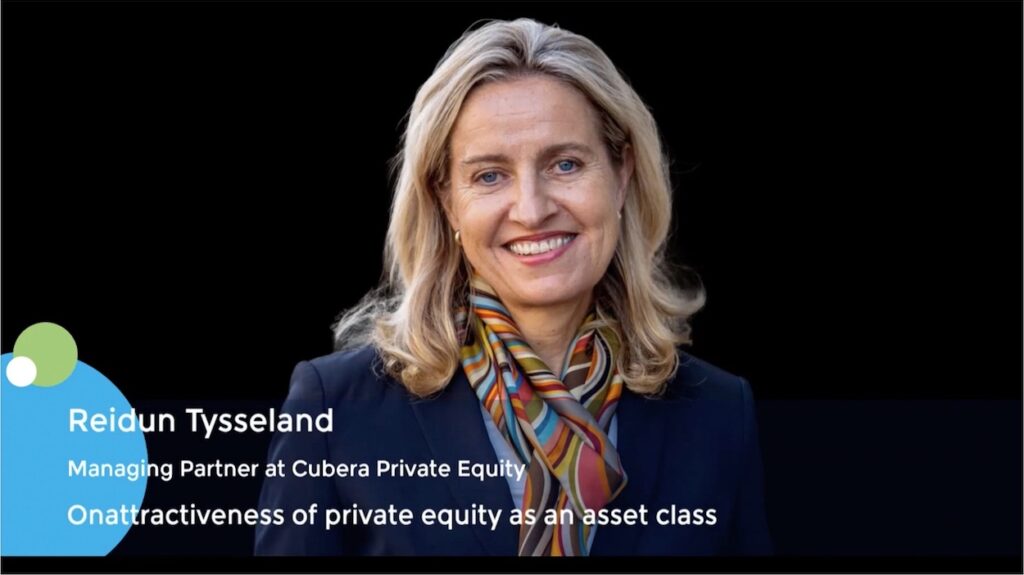EQT sees more upside in its 16-year, USD 14.5bn journey with Nord Anglia
EQT Private Capital Asia’s 16-year relationship with K-12 school operator Nord Anglia spans four funds, two take-privates, more than 12 refinancings, and a ramp in value from USD 379m to USD 14.5bn.
The most recent transaction, led by a consortium of new financial investors, delivered a USD 5.4bn windfall for EQT’s sixth pan-Asian fund and the LPs that co-invested in Nord Anglia alongside it. Industry participants rank it as one of the largest – if not the largest – distribution from an Asia-focused private equity vehicle. Yet EQT reinvested in the business via Fund VIII in expectation of even more upside.
“We’ve been around for 28 years and made over 150 investments. We’ve only done three fund-to-fund transfers in Asia: two with Nord Anglia and one with Tricor-Vistra. These are high-conviction investments, long-term compounders that we want to own and continue to support over the long term,” said Jack Hennessy, a partner at EQT.
“Nord Anglia is the biggest K-12 school operator in the world, yet its market share is only about 1.5%. We aren’t going to run out of runway in my lifetime.”
Hennessy led the 2008 investment, seven years into his career at Baring Private Equity Asia, which merged with EQT in 2022. Andrew Fitzmaurice’s tenure as CEO of Nord Anglia predates even EQT’s involvement. He took the job in 2003, succeeding Kevin McNeany, who founded the business in 1972.
Building scale
Fitzmaurice brought expertise in government contracting, which at the time was a significant part of Nord Anglia’s operations, alongside kindergartens and K-12 schools. The kindergartens were sold shortly before EQT completed a take-private of the then London-listed company. The outsourcing contracts were subsequently allowed to lapse, leaving a standalone school platform.
“Where Baring – as it then was – got it right, what they saw that perhaps the market hadn’t, was the potential of Asian school platform expansion,” said Fitzmaurice. “Between 2008 and 2014, most of the growth was in Asia; we built out our schools in China and entered other markets in the region.”
Nord Anglia had six schools, two of which were in Asia. The company embarked on an aggressive M&A spree, entering Singapore, Malaysia, Indonesia, Thailand, Vietnam, and India. It returned to the public markets in 2014, this time in New York, by which point there were 26 schools, including a nascent presence in the Middle East and North America.
Plugging new schools into the platform brings benefits of scale. Nord Anglia uses common technology systems for managing different aspects of the business, while the professional educators who run schools – Fitzmaurice is firm in this belief that this must be done by educators – undergo standardised management training. Most promotions, including two-thirds of principals, are made from within.
The company also has the resources and reputation to attract high-quality partners as co-creators of education programmes: MIT for sciences and maths, UNICEF for social advocacy and global citizenship, The Juilliard School for performing arts, and IMG Academy for sports and wellbeing. These programmes not only enhance the educational experience, but also help teachers in their professional learning.
However, an increasingly large and global organisation is not a straightforward one – and Fitzmaurice insists this is especially true of K-12 education where local identities count for so much. Nord Anglia has introduced unified standards in areas like technology, but individual schools choose their curriculums and how they shape their educational offerings.
“There’s no one-size-fits-all. You must be careful about what you do from the centre because the schools around the world are so diverse, they reflect their own communities and that’s what makes them a success,” he explained. “We help them to be better versions of themselves through introducing new ways of working and collaborating, and at the same time, we make sense of the benefits of scale.”
Risk profile evolution
Between 2014 and 2017, revenue nearly tripled and the school count rose to 43. Canada Pension Plan Investment Board (CPPIB) approached EQT about another take-private, which resulted in the first fund-to-fund transfer. As part of the USD 4.3bn deal, Fund VI joined the Nord Anglia cap table, while Funds III and IV, which led the original 2008 investment, exited.
Around this time, the business model was undergoing a significant evolution: growth became more organic, having previously been largely driven by bolt-on acquisitions. “We continued to do M&A, but the existing school footprint was so large,” observed Hennessy.
When EQT bought Nord Anglia, K-12 turnover was USD 100m, according to Fitzmaurice. It is now about USD 3bn. Assuming the organic growth rate is unchanged – he puts it at around 10% – the balance sheet impact of each new acquisition is lessened. Another feature of the business is its ability to expand within a locality once a foothold is established by adding new campuses or extending existing facilities.
The company has always been asset-light in nature: it acquires the operating businesses of schools, not the land and buildings. With no ongoing capex requirements, the return on invested capital is relatively high, and free cash flow can be ploughed into new acquisitions and expansions.
The shift to more of an organic growth orientation, which is easier to underwrite than M&A, accentuated the predictability and stability of the business. This, in turn, altered the risk-return profile from an investment perspective, underscoring Nord Anglia’s status as a long-term compounder.
“We have effectively transformed a private equity investment into a social infrastructure investment. Nord Anglia has all the characteristics of social infrastructure – predictable cash flow, high cash flow conversion ratio, high return on invested capital because we are asset-light,” said Hennessy.
“There are equity returns but with very low downside. In its 50-year history, this business has never gone backwards.”
This set the stage for the latest transaction, and the arrival of new lead investors such as Neuberger Berman, state-owned Dubai Holding Investments, and Corporacion Financiera Alba, a Spanish investment holding company. A portion of a USD 10bn equity commitment was also syndicated to other co-investors, while CPPIB rolled over its stake. EQT retains overall control of the governance structure through Fund VIII.
Speaking to AVCJ earlier this year, Jean Eric Salata, EQT’s Asia chair, compared cross-fund transactions to traditional advisor-heavy sales processes. Most of the capital coming in is from new investors, so whoever proposes the best terms becomes the price setter. The rest is filled in with syndication, which includes EQT’s own contribution.
“You might participate through a continuation vehicle or another pool of capital you manage, but provided you are transparent, communicate well, and investors are happy with how you manage the conflicts, most appreciate these are high-quality assets and you don’t want to give them away,” he said.
The long game
Part of this reluctance to let go is captured by K-12 industry statistics. According to research firm Custom Market Insight, the private school segment alone is expected to expand from USD 2.49bn in 2023 to USD 3.89bn by 2030. Asia Pacific is regarded as the fastest-growing market, and it trails North America and Europe substantially in terms of the proportion of public sector spending.
Nord Anglia is one of several global platforms alongside the likes of Gems Education, Cognita Schools, and International Schools Partnership. However, Fitzmaurice sees little evidence of consolidation, citing the sheer power of industry tailwinds such as parents recognising the value of investment in education, the growing middle class, and the use of English as a common business language.
“The international schools market is growing at about 6% a year in terms of student numbers, and while there are other platforms, they are less than 10% of the market. Even with the expansion of these platforms, it’s hard to keep up,” he observed.
For EQT, Nord Anglia is one of numerous education investments stretching back over two decades. Fund VIII, which closed on USD 11.2bn in 2022, also features Credila Financial Services, an India-based education loans specialist, and IMG Academy. The latter was acquired for USD 1.25bn in 2023, largely as a result of EQT tracking the Nord Anglia-IMG programme and its relevance to Asia.
Yet Nord Anglia is unusual because of its size and geographic diversification; most Asia-based education assets targeted by private equity are country-centric. Hennessy views the business as a standout example of long-term opportunities around “turning Asian leaders into global leaders.”
Now with more than 80 schools across 33 countries and a more than 90,000-strong student base, Nord Anglia is every bit the educational behemoth: the largest portfolio company to sit in an EQT Asia portfolio; CPPIB’s largest-ever direct investment in the region; and a long-term bet for EQT’s co-investors, some of which have rolled over positions alongside Funds IV, VI, and VIII.
As to whether EQT may continue the journey through its Asia buyout funds, potentially lining up Nord Anglia for Fund X in five years, Hennessy is equivocal. “Never say never. Nord Anglia is a great business and we would like to maintain some exposure, but we must focus on generating liquidity for Fund VIII investors and co-investors,” he said. “We have multiple liquidity paths that don’t necessarily involve a future fund investment.”














